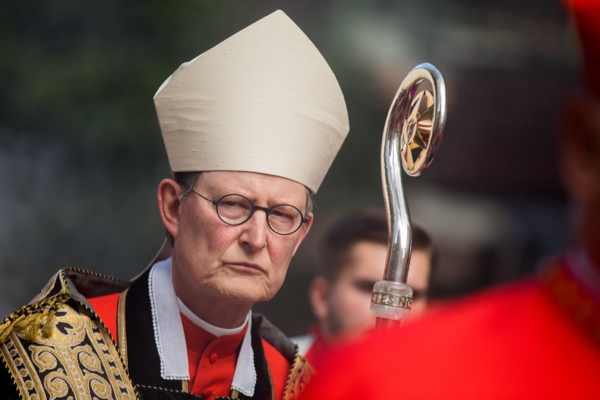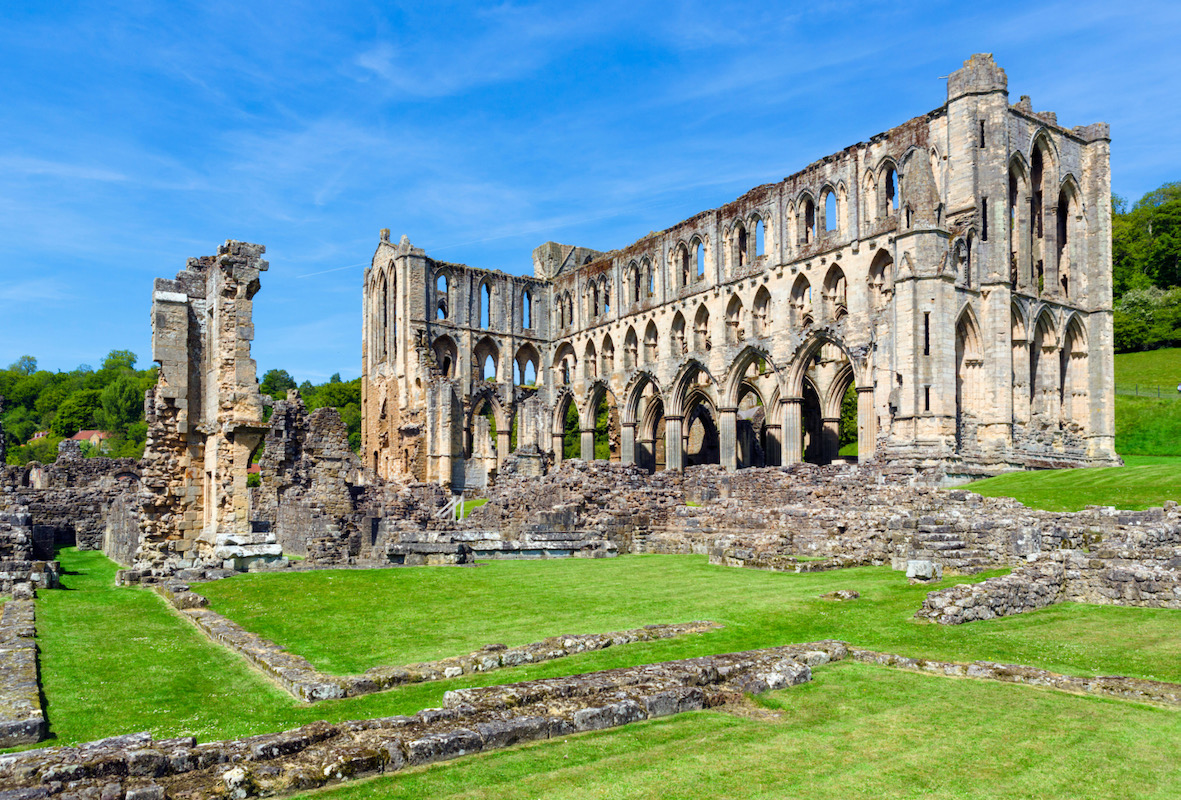English Heritage has announced that it is embracing contemplative life in ruined medieval monasteries around the country.
English Heritage is introducing an “hour of contemplation” in the monastic buildings and ruins currently in its care.
For a month until the 22 October, English Heritage will be encouraging visitors to turn off notifications on their phones, finish up their conversations and enjoy the final hour of public access to its abbeys and priories in contemplative quiet, restoring in that moment the atmosphere and sensibility of the medieval monastery.
Monastic life is governed by often strict rules which vary depending which monastic order inhabits the monastery. In the Latin West the governance of monastic life dates from the Rule of St Benedict, which organised every aspect of life in the monastery, from the leadership of the community, to its diet, division of labour, and liturgical pattern. St Benedict encouraged “moderation” in the use of speech, enjoining monks to speak only when it was necessary or profitable.
Monks were expected to pray the Liturgy of the Hours, eight times a day: Matins, at 2am, Lauds, at dawn, Prime the early morning prayer, Terce the mid morning prayer, Sext at noon, None in the mid-afternoon around 3pm, Vespers at around 6pm marking the start of the evening, and Compline was prayed before retiring to bed, usually around 7pm.
| Rediscovering the silence of medieval monastic Britain: read Michael Carter’s blog on embracing silence as did the monks and nuns of the sixth to the sixteenth centuries. |
In encouraging silence in the final hour of people’s visit to the monastery English Heritage is recalling not only the general contemplative silence of the monastery, but also the stricter “Great Silence” whereby monks desisted from speech altogether after praying Compline.
The English Heritage scheme is being done with the help of actor and broadcaster Stephen Fry, a campaigner and advocate for mental health, who has worked with English Heritage to record an audio introduction to the hour of contemplation. The recording, available from the English Heritage website, invites visitors to seek peace and inspiration at the monasteries in the charity’s care this autumn and includes a reading from Saint Aelred, 12th century abbot of Rievaulx Abbey in Yorkshire.
Dr Michael Carter, senior properties historian at English Heritage, who blogs regularly for The Tablet on medieval monastic history and related matters, said: “For those who lived there, these monastic buildings offered an opportunity to live the heavenly life here on earth, and discover a spiritual inner peace. Throughout the centuries, people have turned to the monasteries now in the care of English Heritage as havens of contemplation and places of spiritual and physical renewal. With many people having experienced a very difficult past 18 months, we’re inviting visitors to escape from their cares for a short time, using the quiet, the sound of the bird song, the rustle of the wind in the trees to contemplate and free their minds and spirits of the busy, noisy, demanding distractions of contemporary life.
“In a modern world, where people are constantly rushing and expected to be at the end of a phone 24/7, we often find silence disconcerting. It’s important sometimes to take a step back, centre yourself and focus on appreciating the peace and tranquillity that is unique to these historic buildings – monuments to the human spirit and the divine, our ongoing quest for inner peace and fulfilment.”
He cited Saint Aelred of Rievaulx, who when describing the majestic Rievaulx Abbey in Yorkshire, wrote: “Everywhere peace, everywhere serenity and a marvellous freedom from the tumult of the world.”
Carter said: “We hope to offer this feeling of serenity to our visitors.”
Rievaulx Abbey is one of 16 former monasteries across England taking part in the trial. Others include England’s best-preserved Carthusian monastery Mount Grace Priory home to a solitary order of monks, Battle Abbey founded by William the Conqueror following the Battle of Hastings, and Lindisfarne Priory, one of England’s most important centres of early Christianity.
Sebastian Milbank comments:
The concept of contemplation has a deeper significance for Christians than modern ideas of “mindfulness”, although they are not unrelated. Christians differentiate strongly between the idea of the “active” and the “contemplative” lives, a division similar to that of the flesh and the soul, or the world and the Church.
Whereas the active, worldly life is one of constant stimulation and distraction, that constantly makes demands of us, and entails the burdens of family, economic and political life, the contemplative ideal entails leaving behind things like property, public duties and family life in order to devote your time to prayer and the pursuit of holiness. When the monk chooses the “religious life” he becomes in a way a different sort of person, ordered more directly to the supernatural ends promised for all Christians. While not every Christian can accept the sacrifices of religious life, all Christians have some share in contemplation and contemplative prayer through their observation of the liturgy, as well as many more informal acts of piety like private prayer, pilgrimage and the veneration of saints.
Monastic life, though consciously “enclosed” and separate from the world, also expresses itself in charitable enterprises and local commerce. In the medieval era in particulat, the very thing that set religious apart from their neighbours, also made them profoundly attractive – their prayers and unique way of life were seen as adding to the spiritual flourishing of both their community and the world.
In making informal secular pilgrimages to England’s historic monasteries and joining in the hour of contemplation, modern visitors will reviving in a small way a more than one thousand year history of monastic life, and opening a window on a rich and varied world of contemplative thought and prayer.



 Loading ...
Loading ...